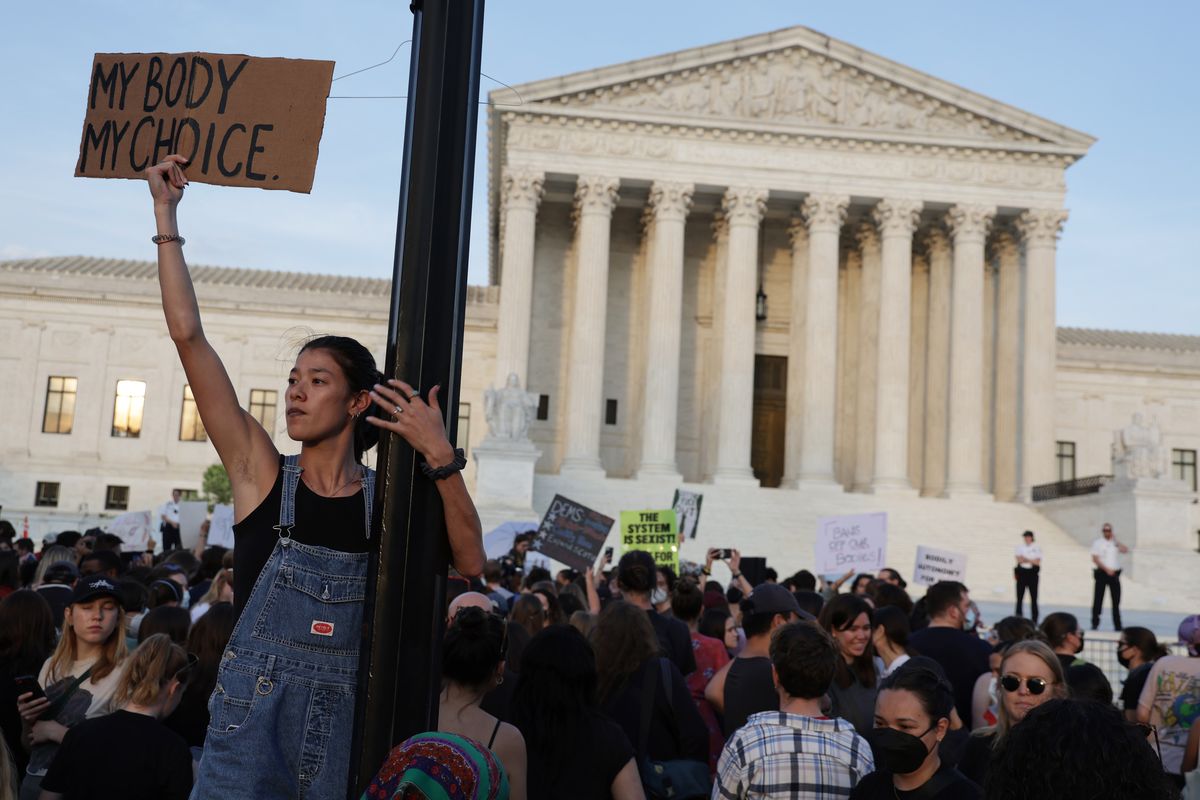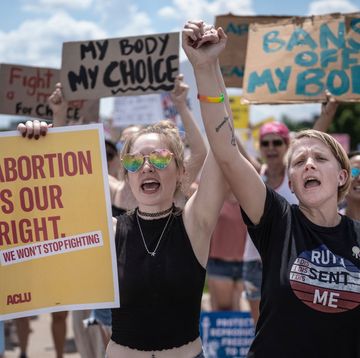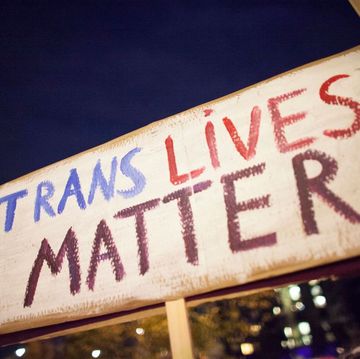Abortion pills may soon be available at your local pharmacy.
Yesterday, the Food and Drug Administration installed a new regulatory change that allows retail pharmacies to offer mifepristone, one of the drugs commonly referred to as the "abortion pill" that can terminate an early pregnancy. The new FDA rule, as well as the United States Postal Service's recent clearance to deliver the drugs even in states with strict abortion bans, provides some limited relief to reproductive rights activists after the Supreme Court overturned Roe v. Wade last June.
Ahead, we break down what to know about getting abortion pills under these new guidelines.
More From Harper's BAZAAR

What is mifepristone, and how does it work?
Mifepristone is a drug that blocks progesterone, a hormone necessary for pregnancy. Mifepristone is used with another drug called misoprostol, which is taken 24 to 48 hours after mifepristone. The FDA has authorized the medication to be used in the first 10 weeks of a pregnancy, although The New York Times noted that some clinics and telemedicine providers offer abortion pills up to 13 weeks into pregnancy, as scientific studies have found evidence that they are still effective at that stage.
This method accounts for more than half of recent abortions in the United States, a Guttmacher Institute study found, indicating that abortion pills are one of the most accessible and preferred ways to terminate a pregnancy.
How does the new FDA rule change access to abortion pills?
Prior to the FDA's regulatory change, patients could obtain mifepristone only through a few mail-order pharmacies or specially certified doctors or clinics. Now, any pharmacy—including big retail chains like CVS and local drugstores—that agrees to abide by the FDA's criteria can dispense abortion medication in stores or by mail order. Patients will still need a prescription from a health care provider in order to pick up or receive the medication.
Though the FDA did not officially announce the change, the agency updated its website to reflect the new rule. Pharmacies may start applying for certification to distribute mifepristone through Danco Laboratories and GenBioPro, the two companies that produce the drug.
On Tuesday, January 3, the FDA also finalized changes that were first announced in December 2021 to end the mandate that required patients to pick up the medication in person. The agency initially lifted the in-person mandate during the onset of the COVID-19 pandemic to allow for telemedicine consultations and mail orders.
Can the USPS mail abortion pills?
A newly issued Justice Department opinion, announced yesterday, has cleared the USPS to continue delivering prescription abortion medication. The opinion states that the mailing of mifepristone and misoprostol does not violate the Comstock Act, an 1873 law that prohibits the mailing and transportation of "any drug, medicine, article, or thing designed, adapted, or intended for preventing conception, or producing abortion," according to the ACLU.
The Justice Department concluded that the law can't limit the mailing of mifepristone and misoprostol if the sender doesn't intend or know that the recipient will use the drugs unlawfully.
"There are manifold ways in which recipients in every state may use these drugs, including to produce an abortion, without violating state law," the opinion reads. "Therefore, the mere mailing of such drugs to a particular jurisdiction is an insufficient basis for concluding that the sender intends them to be used unlawfully."
What does this mean for people who live in states seeking to eliminate access to abortion?
Though it is not yet certain if pharmacies in states with restrictive abortion access will carry mifepristone, the new Justice Department opinion indicates that the USPS can still legally mail abortion medication to those living in restrictive states.
Since senders typically don't know how a recipient will use the medication, and since many restrictive states include legal exceptions for abortion in the case that the pregnant person's life is threatened, the department says that the USPS does not have a sufficient degree of knowledge or intent in order to violate the Comstock Act, which carries penalties of up to five years in prison for a first violation and 10 years for subsequent violations.
"No matter where the drugs are delivered, a variety of uses of mifepristone and misoprostol serve important medical purposes and are lawful under federal and state law. Accordingly, USPS could not reasonably assume that the drugs are nonmailable simply because they are being sent into a jurisdiction that significantly restricts abortion," the opinion reads. "Nor would such an assumption based solely on the recipient's address be reasonable even if it is apparent that some women in a particular state are using the drugs in question in violation of state law."
As an associate editor at HarpersBAZAAR.com, Chelsey keeps a finger on the pulse on all things celeb news. She also writes on social movements, connecting with activists leading the fight on workers' rights, climate justice, and more. Offline, she’s probably spending too much time on TikTok, rewatching Emma (the 2020 version, of course), or buying yet another corset.












